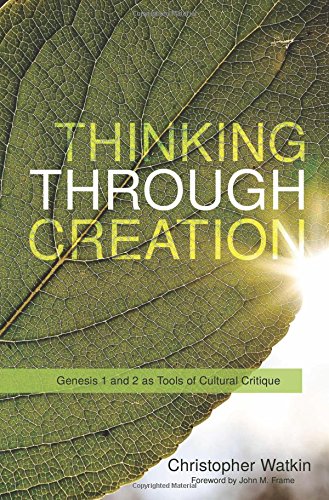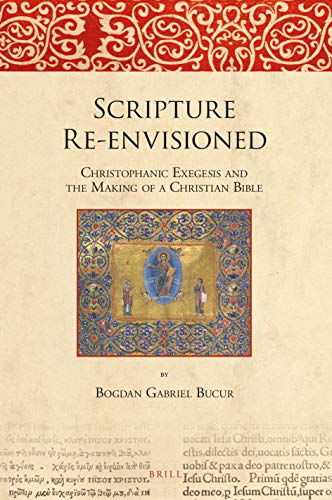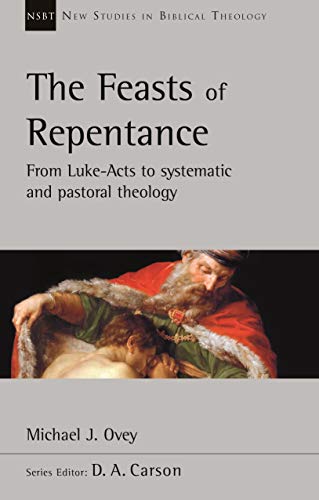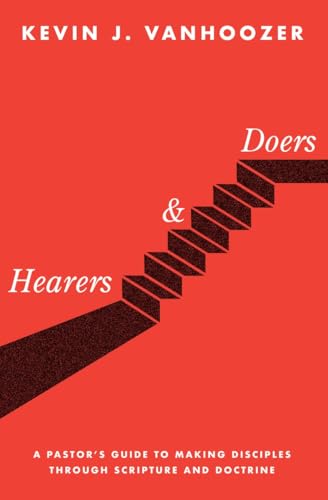Thinking Through Creation: Genesis 1 and 2 as Tools of Cultural Critique
Written by Christopher Watkin Reviewed By Robert S. Smith and Steve FrederickThis review is unusual for two reasons. First, the book’s title—Thinking Through Creation—suggests that it belongs in the Systematic Theology review section, whereas the subtitle—Genesis 1 and 2 as Tools of Cultural Critique—pushes it toward either the Old Testament or the Missions and Culture sections. And yet, here it is in Ethics and Pastoralia! Why so? As we’ll see, the book’s concerns are sufficiently diverse that it could legitimately appear in any of these sections. Its presence here is bound up with the second reason this review is unusual. And that is that it’s a joint-review—written by me, Rob Smith, with my ministry colleague, Steve Frederick. My primary interest in Thinking Through Creation is as a teacher of Christian ethics; Steve’s is as a pastor and, in particular, with the book’s usefulness for ministry to university students. In the review that follows, therefore, we want to highlight the book’s relevance to both of these areas of interest. But first let me introduce Christopher Watkin and then outline the purpose, shape and substance of the book.
Watkin, a Reformed evangelical philosopher-theologian, is senior lecturer in French studies at Monash University in Melbourne, Australia. Over the last decade, he has written numerous books, including: From Plato to Postmodernism: The Story of Western Culture through Philosophy, Literature and Art (2011); Difficult Atheism: Post-Theological Thinking in Badiou, Meillassoux and Nancy (2011); French Philosophy Today: New Figures of the Human in Badiou, Meillassoux, Malabou, Serres and Latour (2016); Jacques Derrida (2017); Michel Foucault (2018) and Michel Serres: Figures of Thought (forthcoming). Thinking Through Creation is also the first in a series of books working through the meaning and implications of the various acts of the biblical drama—creation, fall, redemption, and consummation.
Those familiar with Reformed presuppositional apologetics will appreciate immediately what Watkin is seeking to do in Thinking Through Creation. For, as John Frame notes in the forward, the book is built on the conviction that “Scripture presents not only a way of salvation but a distinctive worldview—a philosophy in which God is Creator-Lord and the world is his creature-servant” (p. ix). For Watkin, this puts Christians in a position to “not only explain the Bible to our culture, but also explain our culture through the Bible” (p. xiii). Such an explanation takes us beyond apologetics to (what Alvin Plantinga calls) “Christian philosophical criticism” and “Positive Christian philosophy” (p. 5). This, in turn, commits us to (what Watkin helpfully labels) biblical theory—“a way of addressing all the facets of contemporary culture and society with a particular set of [biblically derived] convictions, concerns, values, questions, and ideals” (p. 6).
In developing such a “theory,” Watkin is concerned to explore both sides of the Creator-creature distinction. Consequently, the book is as much about the implications of the doctrine of God as it is about the meaning of creation. In chapter 2, therefore, he invites us to think about our culture through the Trinity, arguing that “the Trinity provides Christians with a way of understanding and living in the world that is both more sophisticated and more beautiful than extrabiblical alternatives” (p. xiv). In the process, readers are introduced to Watkin’s preferred tool for cultural analysis: diagonalization—a term that conveys a blend of ‘both-and’ plus ‘neither-nor,’ and functions as “a way of navigating the false dichotomies that litter contemporary culture and thought that neither straightforwardly refuses nor simply embraces them” (p. xiv). The chapter concludes with an important discussion of the way in which biblical Trinitarianism places a “will to charity (agape)” rather than “the libido dominandi (‘will to power’) at the heart of reality” (p. 38).
In chapter 3, Watkin opens up Genesis 1–2 in order to draw out the intellectual and social implications of the biblical account of the creation. Here he shows how the Bible diagonalizes both the contemporary fact-value dichotomy and the current debates about the relationship between language and reality. In addition to this, he elaborates a distinctively Christian understanding of beauty, suggesting that “both a mania for rabid efficiency and a sterile or indulgent aestheticism are reductions of the richer biblical truth that God’s creation marries beauty and functionality” (p. 66).
In chapter 4, Watkin turns more specifically to what Genesis 1–2 teach us about human beings. Here he shows how the biblical account of humanity’s creation in God’s image not only contrasts with various cultural alternatives but is “liable to resonate more deeply with our values and intuitions than do competing accounts” (p. xv). He illustrates this by paying particular attention to the questions of human dignity and equality. He then shows how the creation mandate provides “a foundation and catalyst for incisive and sophisticated interventions into the areas of ecology and environmentalism and also an imperative for Christians to be involved in cultural production in all spheres of society” (p. xv). He concludes the chapter with an exploration of the cultural significance of the Sabbath.
The book’s conclusion not only unpacks Watkin’s aim in writing but expounds at greater length the need for the kind of “kategorics” (i.e., scrutinizing other systems of thought through a biblical lens) he has sought to demonstrate throughout. Importantly, he stresses that the kind of biblical theory he is advocating “will not just critique contemporary culture and society, but provide a vision for its future flourishing” (p. 142).
There is much more that could be said—like the fact that each chapter of the book concludes with lists of “Cultural Patterns,” “Biblical Patterns” and “Key Terms and Names,” followed by questions “For Further Study” and suggestions “For Further Reading”—but it’s time to hear from Steve.
Even before I (Steve) turned the final page of Thinking Through Creation, I was already making a mental list of various university students with whom I might re-read it. The book, of course, has plenty to offer readers beyond the confines of the campus (preachers and schoolteachers, for example). But it is unique in the way it wonderfully models the kind of conversations that are possible between the Christian faith and contemporary secular thought; conversations that are often assumed to be both impossible and unwelcome at university.
The fields of politics, anthropology, philosophy, and science have at times drawn their own battle-lines of disagreement with each other. What they often agree about is that theology has little to contribute to the conversation. Watkin, however, not only illustrates how well theology addresses the intractable dichotomies that bedevil current philosophical and moral debates, but he does so by diving wholeheartedly into one of the most culturally despised parts of Scripture: Genesis 1–2.
Throughout the book, Watkin poses the kind of questions that new university students inevitably find themselves grappling with—the Euthyphro dilemma; the diversity versus unity debate; objective versus subjective perspectives on the nature of language; the tension between functional and aesthetic definitions of “the good”; the fact/value dichotomy; nature versus nurture.
Discipling university students has led me into a myriad of these conversations. Unfortunately, the discussions have often petered out before we were really able to establish how Scripture ought to shape our thinking. This is where Watkin’s book excels as a tool for schooling us in both the reading of Scripture and the reading of everything else through it. Time and again, he models how careful attention to the text can open up whole new ways of discussing important questions. In other words, Watkin does far more than simply suggest Christian answers to secular debates. Rather he shows how to approach the world’s questions via Scripture’s own way of viewing the cosmos.
So, with my little posse of students fresh from their literature, philosophy, and religious studies classes, I dove into the book for a second time. What happened? First, we were greatly helped by the fact that each chapter introduced us to a key point of contention in modern secularist thought, often summarized with a simple diagram. (These diagrams also proved useful as a way of getting all the students on the same page, especially if some hadn’t read the whole chapter in advance.) Watkin then introduced us to a key text from Genesis 1–2, supplied a number of salient exegetical and theological insights, and showed how biblical truth compares with other worldviews. Finally, he skillfully reframed the initial question or controversy in a way that was genuinely insightful, personally challenging and unashamedly biblical. The discussions generated not only discipled us in our knowledge of God but tutored us in the distinctive shape love will take when it flows from God’s own nature into the lives of his creatures.
We have nothing but praise for this book, highly commend its pedagogical utility and greatly look forward to subsequent volumes in the series.
Robert S. Smith and Steve Frederick
Robert S. Smith
Sydney Missionary and Bible College
Croydon, New South Wales, Australia
Steve Frederick
St Andrew’s Cathedral
Sydney, New South Wales, Australia
Other Articles in this Issue
What are we to make of Cultural Marxism? This article seeks to answer that question, first, by outlining the key elements and legacy of classical Marxism; second, by exploring the neo-Marxism of Antonio Gramsci; third, by assessing the main ideas and impact of “the Frankfurt School”; and, fourth, by offering some reflections on (i) the links between these thinkers and various contemporary developments, (ii) the wisdom of employing the term Cultural Marxism, and (iii) how Christians should respond to the current “culture wars” that are polarizing the Western world.
The diverse essays in Stanley Rosenberg’s edited volume Finding Ourselves After Darwin: Conversations on the Image of God, Original Sin, and the Problem of Evil (Grand Rapids: Baker Academic, 2018) offer a Christian analysis of the human person in light of evolutionary thinking...
Do Formal Equivalent Translations Reflect a Higher View of Plenary, Verbal Inspiration?
by William D. MounceThe article begins by establishing five categories of translation theory and argues that functional translations like the NIV do in fact reflect the meaning of every Greek word, but not in the same way as formal equivalent translations do...







